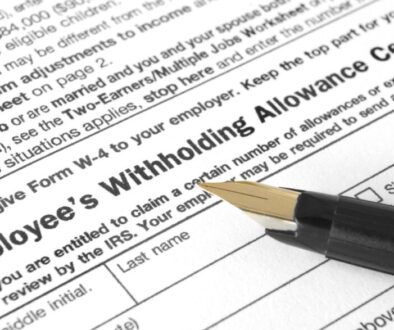Are Funeral Expenses Tax Deductible?
Are funeral expenses tax deductible?
If you’ve had the unfortunate experience of losing a loved one in the past tax year, first, we are sorry for your loss. In the midst of planning for a service and burial or cremation for your loved one, taxes are likely the last thing on your mind. However, funeral expenses can add up. Whether or not you can claim these expenses as a deduction depends on several factors, from the type of the expense to if you’re claiming them as an individual or an estate.
What types of funeral expenses are there?
When planning for your loved one’s funeral, you may have encountered a variety of costs. The average funeral price in 2021 was $7,848, including viewing and burial. Opting for cremation was slightly cheaper, with the median cost of $6,971. Additional costs may include flowers, memorial cards, catering and venue costs, officiant fees, and transportation costs.
Can I deduct funeral expenses?
As an individual, you’re not able to deduct funeral expenses on your tax return per the IRS. You also can’t claim funeral expenses as a medical expense for the deceased either. If the deceased incurred qualifying medical expenses prior to death, those may be itemized on a return.
Can an estate deduct funeral expenses?
Some estates may be able to deduct funeral expenses. If the estate in question pays federal taxes, they may be able to deduct the funeral expenses on a return if the estate’s funds were used for the funeral costs. However, most estates don’t qualify for this deduction unless the estate reaches the threshold of $12,060,000 (the federal estate tax exemption limit) in the 2022 tax year. Estates under the $12 million threshold don’t need to file a federal return and therefore don’t qualify for the deduction.
How can I claim funeral expenses as a deduction?
If your estate meets the threshold for filing taxes, you can claim the deductions using IRS form 706. Keeping good track of expenditures from the estate during the funeral planning process will make filing this form easier. The types of expenses that you may be able to deduct include:
- Fees for the funeral home
- Burial
- Cremation
- Embalming costs
- Casket or urn costs
- Fees for an officiant
- Funeral director fees
- Transportation including a hearse or limo from the service to a burial location
- Floral services
- Catering services
- Venue fees for a brunch, lunch, or reception
- Grave markers, tombstones, or other burial markers
Note that if any of these costs were paid out by a funeral insurance policy or an individual, you can’t claim them – they must have been paid out via the estate.
What funeral expenses can’t I claim?
Even if your estate does qualify and you are able to claim funeral expenses, there will still be some expenses that you won’t be able to deduct:
- Anything paid out by a funeral or life insurance policy
- Travel costs for yourself or any funeral guests
- Medical expenses at the end of life
You also can’t claim the funeral expenses on the decedent’s final tax return. More information on filing a tax return for someone that is deceased can be found via IRS publication 559.
How can I plan for funeral expenses?
The best way to plan for funeral expenses, either for yourself or a loved one, is to work with a financial advisor, tax professional, and estate attorney. At Diversified, we can assist you with all three so that your financial planner, tax professional, and estate attorney are all working hand-in-hand to provide the most comprehensive estate planning based on your goals.
Planning ahead for funeral expenses may also involve ensuring that you have adequate insurance coverage. We also have Diversified Insurance available to help with your insurance needs, so that you have everything you need for financial peace of mind in one easy location.




